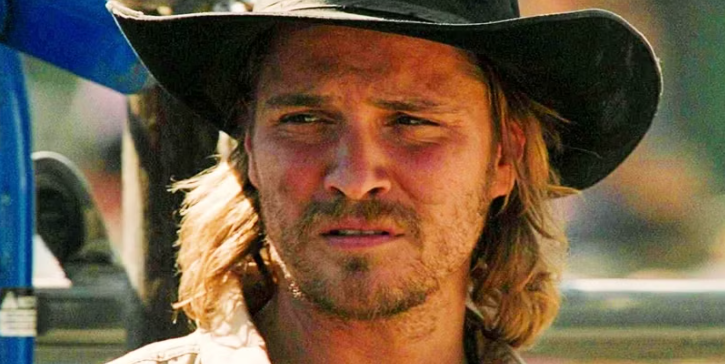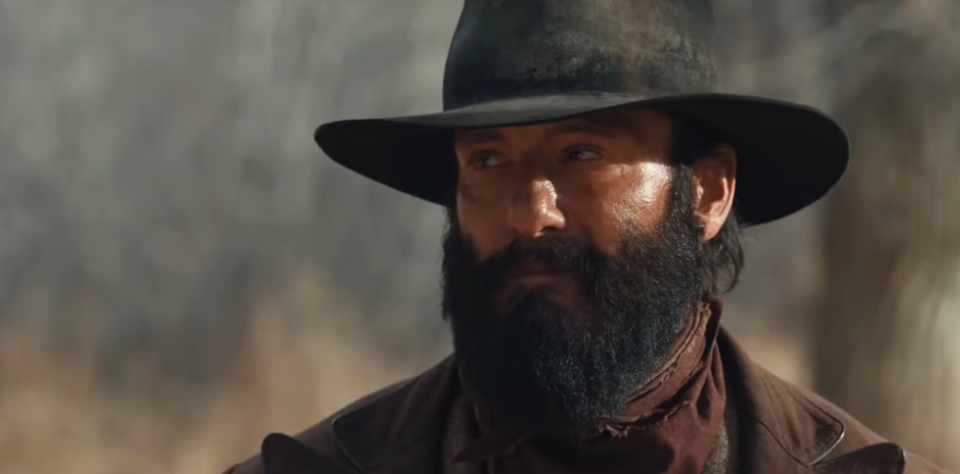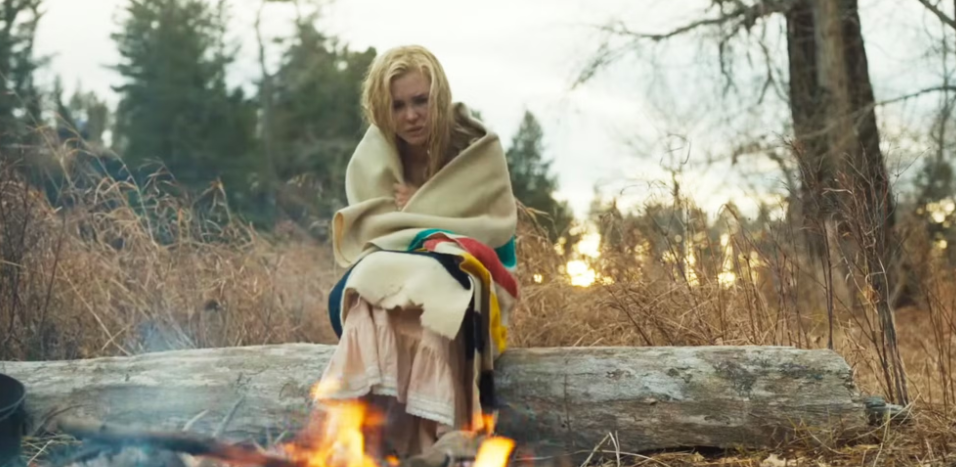Quick Summary
The 1883 prophecy reveals that the Dutton family will eventually lose control of the land they fought so hard to claim. Spotted Eagle’s prediction, made over a century ago, foretells that Native American tribes will rise up and reclaim the land in seven generations. With the seventh generation—Tate Dutton—coming into focus, it’s clear that the prophecy is setting the stage for a shift in the Yellowstone saga. This article explores the significance of the prophecy, its connection to Yellowstone’s future, and what it could mean for the Dutton family and their legacy.
Yellowstone has captivated audiences with its gripping portrayal of the Dutton family’s turbulent life on their Montana ranch. But what if I told you that an ancient prophecy from the spinoff series 1883 essentially reveals how Yellowstone will end? This prophecy, delivered by a Crow elder named Spotted Eagle, offers a glimpse into the future of the Dutton family, and it suggests a dramatic shift in power over the land they hold dear. In this blog post, we will dive deep into the significance of this prophecy, how it could shape the fate of Yellowstone, and what it means for the beloved characters we’ve grown to know and love.
What Is the 1883 Prophecy and Why Is It Important?
The 1883 miniseries, a prequel to Yellowstone, tells the origin story of the Dutton family. As James and Margaret Dutton make their way westward with their children, they encounter a multitude of challenges, including tragic losses, intense hardships, and an eventual death that sets the stage for the family’s legacy.
As they make their journey, they come across Spotted Eagle, a Crow elder who offers a prophecy that would echo throughout the generations.
Spotted Eagle’s Prophecy: A Glimpse into the Future
Spotted Eagle’s prophecy is powerful and chilling. In the final episodes of 1883, as Elsa Dutton is fatally wounded by an arrow during a Lakota raid, she and her father James stop to meet the elder. In this meeting, Spotted Eagle shares a prophetic statement that resonates across the series:
“In seven generations, my people will rise up and take it back from you.”
This statement seems almost cryptic at first, but as we look deeper, it reveals a stunning prediction: the Duttons will eventually lose the land they fought so hard to claim.
Why Is This Prophecy Important?
The prophecy isn’t just a throwaway line; it is a key element that ties 1883 and Yellowstone together. At the heart of Yellowstone lies the battle over land—who owns it, who controls it, and who has the right to claim it. The Dutton family’s story is deeply tied to the legacy of landownership, with their ranch representing power, wealth, and stability. Spotted Eagle’s prophecy signals a future where that power could slip away from the Duttons and be reclaimed by the indigenous people.
In addition to its symbolic power, the prophecy speaks to broader themes of colonialism, land theft, and the ongoing struggles between Native American tribes and settlers in the American West. The Yellowstone universe, with all its complex family drama, is rooted in a historical reality that continues to echo today. This makes Spotted Eagle’s words not just an ominous prediction but also a powerful commentary on the consequences of land dispossession.
How Does the 1883 Prophecy Relate to Yellowstone’s Future?
Now, let’s connect the dots between the 1883 prophecy and Yellowstone. At the center of the Yellowstone series is the Dutton family’s ironclad hold on their land, but as Yellowstone continues, we see signs that this control might not last forever. If you take a step back and examine the themes of the show, it’s clear that the 1883 prophecy is setting up a potential endgame: the Duttons losing the ranch.
The Seven Generations and Their Impact on the Dutton Family
Spotted Eagle’s prophecy speaks about the “seven generations” that will pass before the land is reclaimed. For those who are not familiar, the Dutton family line is traced through its descendants, and the seventh generation is particularly significant. Yellowstone has already confirmed that Tate Dutton—the son of Kayce and Monica—is part of this seventh generation. He is directly linked to both the Dutton family’s future and their potential downfall, making him a crucial character to watch.
In Yellowstone, we have already seen the seeds of a generational shift in control of the land. If the prophecy holds true, the seventh generation will be the final one to control the ranch before it is taken back by Native American tribes. This could happen through legal battles, external pressures, or perhaps even a shift in the family’s willingness to fight for the land.
The Prophecy’s Impact on Yellowstone Characters
With this prophecy hanging over their heads, the characters of Yellowstone are destined to face consequences that will affect not only the land but their own futures. Let’s take a closer look at some of the characters whose fates are tied to this prophecy and how it may play out.
John Dutton’s Promise and the Fate of the Ranch
One of the central figures in Yellowstone is John Dutton (played by Kevin Costner), the patriarch of the Dutton family. Throughout the series, John makes it clear that he is deeply committed to protecting the family ranch at all costs. His promise to his father to “never let go” of the land is central to his identity, and this promise has defined much of the show’s narrative.
But with the prophecy looming, one can’t help but wonder: Will John Dutton be able to hold onto the ranch?
John’s time may be running out. Rumors about Kevin Costner’s exit from the series suggest that John’s story could be coming to an end soon. If the prophecy proves true, John Dutton’s death could mark the beginning of the end for the ranch, especially if Tate—who is of Native American descent—becomes the heir to the land. John’s death would be a tragic but fitting conclusion to his character arc, especially if it signifies the inevitable fulfillment of Spotted Eagle’s prophecy.
The Seventh Generation: Who Will Inherit the Ranch?
Tate Dutton is the seventh generation of the Dutton family, and with his mixed Native American heritage, he represents the intersection of two cultures that have historically clashed over land. His role in the future of the ranch is pivotal. While John Dutton might want to ensure the legacy of the family ranch remains intact, Tate’s role as a potential heir to the land raises questions about how he will navigate his identity and responsibility.
Tate’s inheritance of the ranch could mark a significant shift, both within the Dutton family and in the broader context of the story. As a character who is part of the seventh generation, his fate seems tied directly to the fulfillment of the prophecy, and it’s possible that his story will be key to understanding how Yellowstone ends. Will Tate continue his family’s legacy, or will he choose a different path? It’s a question that will likely play a central role in the series’ conclusion.




Will the Duttons Lose the Ranch in Yellowstone?
As we’ve explored in earlier sections, the prophecy from 1883 strongly suggests that the Duttons may indeed lose their ranch—something that has been the focal point of Yellowstone since its inception. But will this actually happen? Let’s take a closer look at what the series has been setting up and whether the Dutton family can hold onto their land despite the ominous prophecy.
The Dutton Family’s Struggles and the Legacy of Land Ownership
From the very beginning, Yellowstone has painted a picture of the Dutton family’s intense struggle to keep their ranch. John Dutton has fought countless battles to maintain control over the land, whether it’s defending against developers, government officials, or rival ranchers. This theme of land ownership is central to the show, and it’s clear that for John, the ranch represents more than just property—it’s his legacy, his identity, and his father’s dying wish.
However, despite all of their efforts to protect the ranch, there are several indicators in the show that point to the eventual loss of the land. With tensions rising between the Duttons and outside forces, coupled with the growing presence of Native American characters like Kayce and Monica, the series has started to address the idea of land’s rightful owners—something that connects directly to the prophecy made in 1883.
The presence of Yellowstone’s younger generation, particularly Tate, brings a sense of inevitability to the story. Tate, as the seventh generation, could very well represent the bridge between the Duttons and the indigenous people whose land was stolen in the past. This generational shift—especially if Tate inherits the ranch—is a clear nod to Spotted Eagle’s prophecy. While it’s uncertain exactly how the Duttons will lose the land, one thing seems clear: their hold on it won’t last forever.
Is a Dutton Tragedy Inevitable?
If Kevin Costner’s exit from the series is truly imminent, it would signal a tragic end for John Dutton. His death could mark the turning point where the Dutton family loses control of the ranch. While it’s impossible to predict every detail, it seems likely that the prophecy and the shifting dynamics within the family will lead to a dramatic change in ownership.
What Does This Prophecy Mean for the Larger Yellowstone Universe?
The 1883 prophecy holds significant weight not only for the Dutton family but also for the larger Yellowstone universe. The series and its spinoffs have woven a complex web of characters, families, and tribes, and the prophecy from 1883 adds another layer of depth to these interconnected stories.
A New Era for the Duttons and Native American Relations
The prophecy foresees a future where Native American tribes rise up to reclaim the land taken from them. This could open the door for a new generation of characters to take center stage, particularly those of Native American descent, such as Monica and Kayce. With their ties to the land and their heritage, these characters could play crucial roles in bridging the past and present tensions.
In addition, spinoffs like 1923 and Bass Reeves offer glimpses into other aspects of American history that tie into the broader cultural context of the Duttons’ story. As Yellowstone progresses, we may see the prophecy’s impact on the relationships between settlers, ranchers, and indigenous communities—providing a historical reflection of real-world struggles for land and sovereignty.
A Changing Power Dynamic
The prophecy could also mark a shift in power within the Yellowstone universe. If the Duttons lose the ranch, other characters—perhaps those who were once rivals or adversaries—could emerge as the new power players. This opens the door to a potentially dramatic new direction for the series, where the fate of the land is no longer in the hands of the Duttons.
How Does the Prophecy Reflect Real-Life History and Cultural Themes?
While the prophecy itself is fictional, it draws heavily from real historical events, particularly the treatment of Native American tribes by settlers. The Duttons’ journey in Yellowstone reflects the larger, often painful history of colonization, land theft, and the ongoing struggle for Native American rights and sovereignty.
Native American Land Dispossession
For centuries, Native American tribes were forcibly removed from their ancestral lands as settlers moved westward. This history is reflected in Spotted Eagle’s prophecy. The idea of reclaiming the land speaks to the long-standing grievances of indigenous communities, whose cultures, ways of life, and connections to the land were uprooted by colonization.
The Legacy of Colonialism in Yellowstone
In Yellowstone, we see the consequences of this colonial legacy play out on-screen. Characters like Kayce and Monica are caught between two worlds—the world of their Dutton ancestors and the world of their Native American heritage. This tension is a reflection of the broader cultural themes of displacement, identity, and the quest for justice.
The prophecy, in this context, becomes more than just a plot device—it becomes a symbol of the long-standing conflict over land ownership and the need for reconciliation. It suggests that while the Duttons may control the land for now, history has a way of coming full circle, and the past will always catch up with the present.
What Does the 1883 Prophecy Reveal About the Future of Yellowstone and Its Characters?
The 1883 prophecy offers a glimpse into the future of Yellowstone and its characters, especially regarding the fate of the Dutton family. It suggests a future where the family loses its hold on the land, but it also presents opportunities for new stories to unfold.
Tate Dutton: The Seventh Generation
As the seventh generation, Tate Dutton stands at the crossroads of the family’s future. He is the key to the prophecy’s fulfillment. With his mixed heritage, Tate represents the union of two cultures—one that fought to possess the land and one that fought to preserve it. His journey may reflect the balance between preserving his family’s legacy and recognizing the rightful ownership of the land by Native American tribes.
A Shift in Family Power
The loss of the ranch would mark a profound shift in the Dutton family’s power dynamics. Characters like Kayce, who has already shown his loyalty to the land, may become more central in the narrative. Will he fight for the land in the name of his family’s heritage, or will he acknowledge that the future of the ranch lies elsewhere?
Conclusion: What Does This All Mean for Yellowstone Fans?
The 1883 prophecy adds a layer of intrigue and depth to the Yellowstone universe. While the Duttons may currently hold power, the prophecy suggests that their reign over the land is temporary. As the series progresses, we’ll likely see how this prediction plays out, with the Dutton family facing challenges to their landownership from both internal and external forces.
For Yellowstone fans, this prophecy provides a unique lens through which to view the series. It hints at the eventual endgame for the Duttons, suggesting that the land they cherish may one day be reclaimed. But it also opens the door for new characters, new stories, and new relationships to emerge, all while grappling with the weight of history.
As the prophecy continues to unfold, one thing is certain: the future of Yellowstone is anything but predictable. And that’s exactly what makes it so compelling.
Frequently Asked Questions
As the Yellowstone universe continues to captivate audiences with its rich storyline and complex characters, many fans are left with lingering questions about the future of the Dutton family and the role of the 1883 prophecy. In this section, we’ve gathered some of the most frequently asked questions to provide clarity on these intriguing topics.
1. What Is the 1883 Prophecy About?
The 1883 prophecy, delivered by Spotted Eagle to James Dutton, foretells that in seven generations, the Native American tribes will rise up and reclaim the land once taken from them by settlers. This prophecy has far-reaching implications for the Dutton family, suggesting that their control over the land, and by extension their ranch, will eventually come to an end.
2. How Does the 1883 Prophecy Relate to Yellowstone’s Future?
The prophecy serves as a pivotal plot point in Yellowstone’s broader narrative, hinting that the Dutton family may lose the ranch in the future. The seventh generation of the Duttons, including Tate, may be the key to fulfilling the prophecy. This suggests that the Dutton family’s hold on their land is not permanent, and external forces—especially Native American tribes—will play a significant role in determining the future of the ranch.
3. Will the Duttons Lose the Ranch?
While it’s impossible to know exactly how the series will unfold, the 1883 prophecy strongly suggests that the Duttons will lose control of the land at some point in the future. The involvement of characters like Kayce and Monica, as well as the idea of the Duttons passing the ranch on to a new generation, points to the eventual relinquishment of the family’s claim to the land.
4. Who Is the Seventh Generation of the Duttons?
The prophecy specifically mentions that in seven generations, the land will be reclaimed. Tate Dutton, the son of Kayce and Monica, is the seventh generation of the Dutton family. His role in the future of the ranch will likely be central to how the prophecy plays out, especially as he navigates his mixed heritage and the complicated relationship between the Duttons and Native American tribes.
5. How Does the Prophecy Reflect Real-Life History?
The 1883 prophecy draws directly from real historical events involving the dispossession of Native American lands. The history of colonization, land theft, and the ongoing struggle for sovereignty is a key theme in both Yellowstone and 1883. The prophecy speaks to the real-world issues of land ownership, cultural survival, and the long-lasting effects of colonialism on indigenous communities.
6. What Does the Future Hold for Yellowstone Characters?
As the Dutton family’s control over the land begins to unravel, the future of Yellowstone characters like Kayce, Monica, and Tate will become even more critical. Kayce’s loyalty to the land, combined with his own identity struggles, may put him at the center of the story as tensions between settlers and Native American tribes intensify. Meanwhile, Tate’s role as the seventh generation could signal a shift in the power dynamics of the Dutton family and the land they’ve fought to protect for generations.
7. Will the Duttons’ Tragic End Be a Part of the Series?
Given the themes of loss, family legacy, and land in Yellowstone, a tragic end for the Duttons seems highly likely. With John Dutton’s promise to his father to hold onto the land at all costs, it’s clear that his eventual death, possibly in the upcoming seasons, could serve as the catalyst for the Duttons losing the ranch. The series may follow this tragic path, but with plenty of twists and turns along the way.
8. What Does the Prophecy Mean for Native American Representation in Yellowstone?
The 1883 prophecy opens the door for more nuanced storytelling around Native American representation in Yellowstone. As characters like Kayce and Monica navigate their identities, the series highlights the importance of land and heritage to Native American communities. The prophecy suggests that the fate of the Duttons and the land will intersect with Native American sovereignty, reflecting a complex history of conflict and reconciliation.
Author’s Note
As a fan of the Yellowstone series and its compelling spinoffs, it’s been fascinating to dive into the layers of storytelling and history that shape this universe. The 1883 prophecy, which hints at the eventual downfall of the Dutton family’s control over their land, is a captivating narrative thread that ties together past, present, and future in the series.
Writing this article was an opportunity to reflect on how the series draws on real historical themes while blending them into modern-day storytelling. The Yellowstone universe is not just about the dramatic tension between families and land—it’s about identity, legacy, and the inevitable changes that come with time.
Whether you’re a longtime fan of the Duttons or new to the world of Yellowstone, I hope this article gave you new insights into the fate of the ranch and the legacy of the Duttons. The future of the Dutton family is still uncertain, but the 1883 prophecy has set the stage for a story that’s both deeply personal and universally relevant.
If you enjoyed this deep dive, feel free to explore other articles on this site where we discuss the intricacies of the Yellowstone universe and its characters. Also, I encourage you to revisit 1883 and Yellowstone with this new perspective in mind—it’s always a treat to rewatch with fresh eyes!
Thank you for reading!
By SSonko David
Ssonko David is a skilled entertainment news writer with a wealth of experience spanning over four years in the industry. Having collaborated with several reputable media outlets, David combines his extensive knowledge with a genuine passion for storytelling to create engaging and insightful articles.
About Patoga Nation
Patoga Nation Inc. is a leading digital media platform founded in 2020, dedicated to delivering unparalleled insight, analysis, and news in the entertainment, gaming, and pop culture industries.
Editorial Standards
At Patoga Nation Inc. (“Patoga Nation”), we are deeply committed to producing high-quality, accurate, and universally beneficial content that resonates with integrity and credibility. Our editorial standards reflect our mission to inform, engage, and empower our audience across diverse topics, from breaking news to in-depth guides, reviews, opinion pieces, and features.
